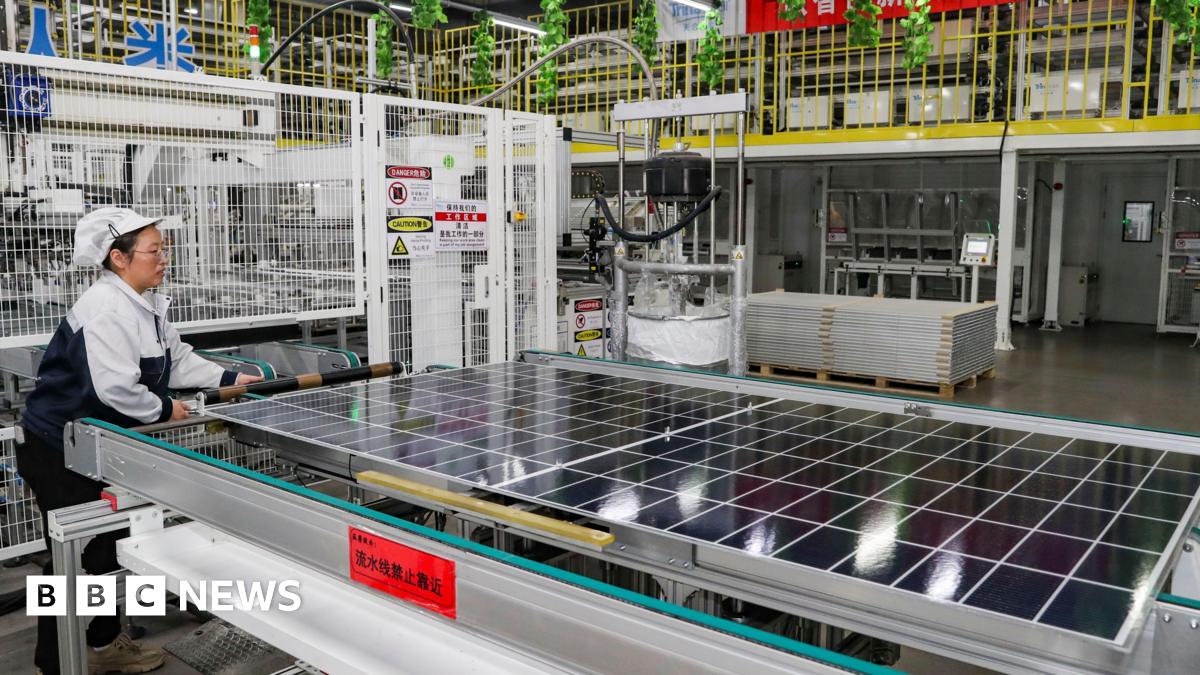US Slaps Massive Tariffs on SEA Solar Panel Imports: A Blow to Clean Energy?
The U.S. Department of Commerce recently announced the imposition of significant tariffs on solar panels imported from Southeast Asia (SEA), a move that has sent shockwaves through the clean energy sector and sparked heated debate. This decision, following an investigation into alleged circumvention of existing tariffs on Chinese solar panels, has raised concerns about the impact on the burgeoning renewable energy industry and the global fight against climate change.
Record-High Tariffs and Their Impact
The tariffs, ranging from 18% to 250%, are significantly higher than previously anticipated. This dramatic increase will almost certainly impact the affordability of solar energy in the United States, potentially hindering the country's progress towards its ambitious clean energy goals. The affected countries include Cambodia, Malaysia, Thailand, Vietnam, and others, all major exporters of solar panels, many of which utilize components originating from China.
- Increased Costs for Consumers: Higher tariffs translate directly into higher prices for consumers, making solar panel installations less accessible and delaying the transition to cleaner energy sources. This could disproportionately affect lower-income households who rely on affordable energy solutions.
- Slowdown in Solar Installations: The price hike may cause a significant slowdown in the installation of new solar panels, impacting the employment of thousands of workers in the solar industry, from installers to manufacturers.
- Supply Chain Disruptions: The tariffs create further uncertainty in an already complex global supply chain, potentially impacting the reliability and stability of the U.S. solar energy sector.
The Argument for Circumvention and Counterarguments
The Commerce Department's investigation centered on claims that Chinese companies are circumventing existing anti-dumping and countervailing duties by shipping solar panel components to SEA countries for assembly before export to the US. This alleged circumvention, according to the Department, undermines the effectiveness of previous trade measures designed to protect American manufacturers.
However, critics argue that the investigation's methodology was flawed and that the tariffs unfairly punish legitimate SEA solar panel manufacturers who have invested heavily in their operations. They also highlight the potential for the tariffs to stifle global efforts to combat climate change by hindering the deployment of solar energy, a crucial renewable resource.
Looking Ahead: Uncertainty and the Future of Solar Energy
The long-term consequences of these tariffs remain uncertain. While proponents argue it protects American jobs and the domestic solar industry, opponents fear it will harm the clean energy transition and negatively impact international trade relations. The decision could lead to further trade disputes and complicate efforts to collaborate on global climate initiatives.
Several key questions remain unanswered:
- Will this decision withstand legal challenges? The ruling is likely to face legal challenges from affected businesses and countries.
- What will be the long-term effect on the U.S. solar market? Will domestic manufacturers be able to fill the gap created by reduced imports?
- How will this impact U.S. relations with SEA nations? This action could strain diplomatic ties with important trading partners.
This situation underscores the complex interplay between trade policy, environmental concerns, and national economic interests. The coming months will be crucial in observing the ramifications of these significant tariffs on the U.S. energy sector and the global fight against climate change. It's a development that warrants continued attention and analysis.

